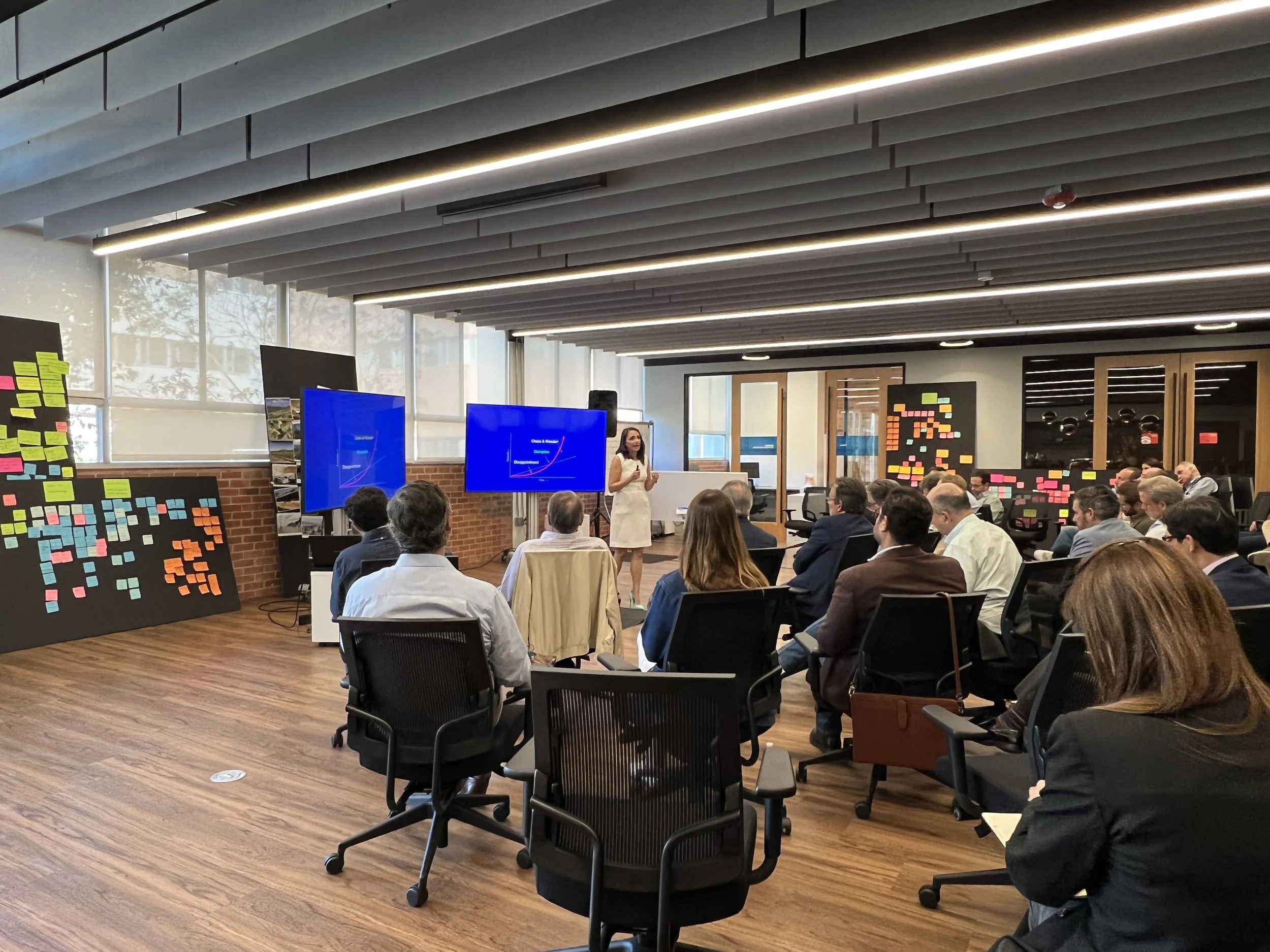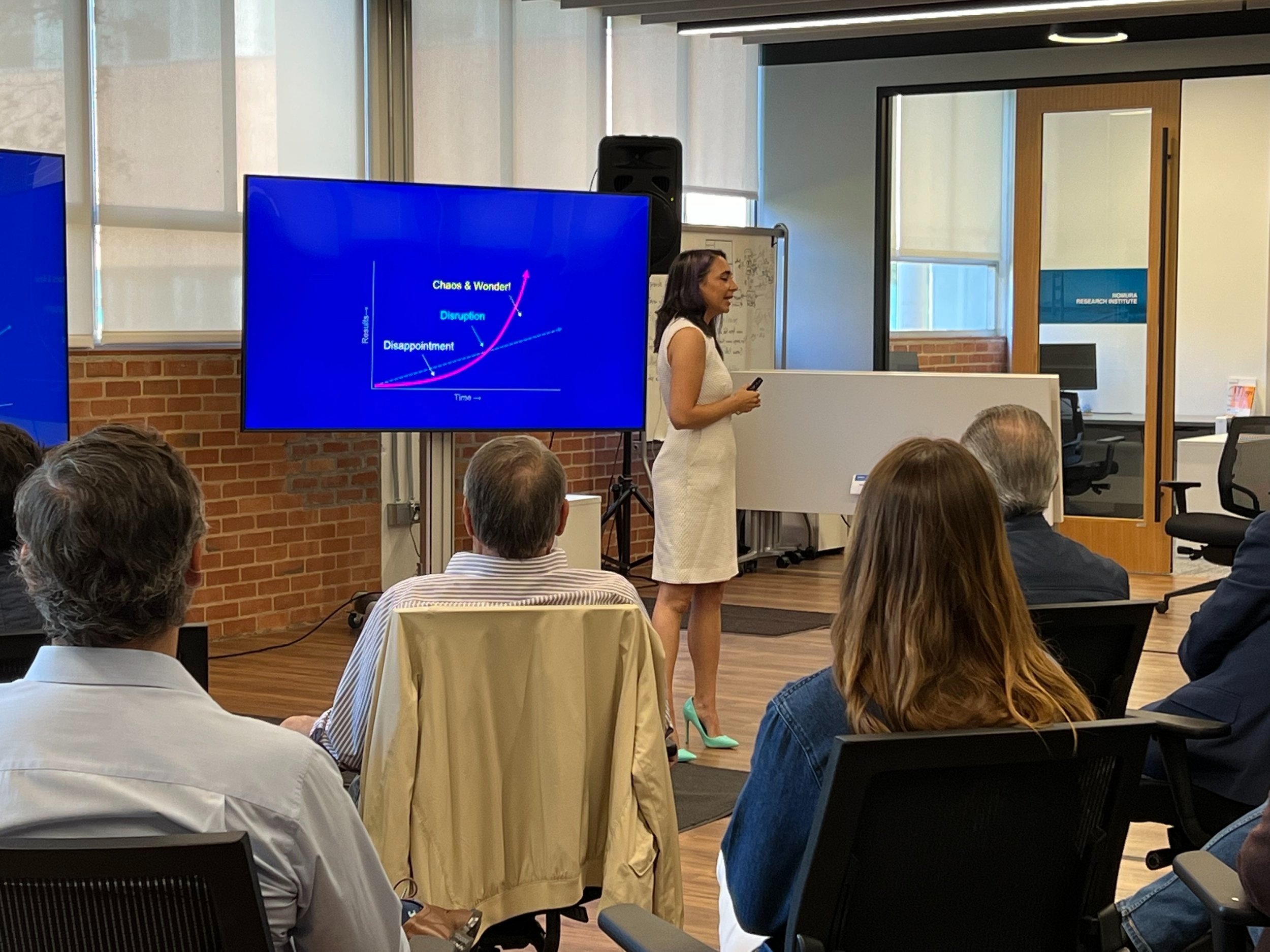Going Back in Time: Imagining a Better Future with More Women in Tech
Image credits: Metamorworks via Shutterstock.
At a recent event, I was asked a fantastic question—possibly the best question I’ve ever been asked after a talk.
I had just finished guiding the audience through a primer on exponential technologies, why they’re important, and how we can think about them. A participant grabbed the microphone and said, “If you could go back in time 50 years and change something about technology in order to impact the present, what would you change?”
No one had ever asked me that before!
I allowed myself a few moments to think (never an easy task in front of an audience). Suddenly, I remembered a provocative idea (to me, at least) that I had recently heard on a podcast: that in the 1970s, a cultural shift transformed computer programming from “women’s work” to “men’s work.”
For the audience, I quickly sketched out my second idea for how today’s tech landscape could be transformed by going back in time. Here’s the basic idea. Computers were recognized as crucial to the war effort in the 1940s. Both hardware and software needed to be developed—and women couldn’t be drafted and sent to battle.
💡 Women therefore made groundbreaking contributions during these early days of computer science.
Check out the book or movie of Hidden Figures, Season 2 of the Lost Women of Science podcast, and anything about the legendary Dr. Grace Hopper to hear some of these stories.
But then something happened in the 1970s. As the idea of personal computing began to take hold, it seems that the perception of programming shifted from “underpaid and unglamorous” to “highly skilled and groundbreaking”. In other words, programming shifted from “women’s work” to “men’s work.” Over time, the early women programmers—who were talented mathematicians and engineers but largely figured things out as they went along—were replaced by men with specialized education and experience. Around 1984, the percentage of women studying computer science went into steep decline. Today, women earn only 18% of undergrad degrees in computer science in the USA, and only 24% of computing jobs are held by women (source).
💡 This quick sketch glosses over important details. But it begs a crucial question. How would our technologies—and our daily lives—be different if women hadn’t left coding?
Perhaps our algorithms would be a bit less gender-biased. Perhaps the gender pay gap would be narrower, at least in tech. Perhaps our cultural perspectives around gender in computing would increase our creativity by increasing our diversity—across technology and science. Perhaps such a rising tide would indeed float all boats.
I’ve had a few other ideas for impactful leaps 50 years backward in time. Encourage cheap clean energy instead of cheap petrol. Target sustainable, healthy food instead of cheap food. But I think that keeping women in the computer-science pipeline would have landed us in a very different world from the one in which we live today.
How about you? If you could go back 50 years to build a better future, what would you do?
About Tiffany
Dr. Tiffany Vora speaks, writes, and advises on how to harness technology to build the best possible future(s). She is an expert in biotech, health, & innovation.
For a full list of topics and collaboration opportunities, visit Tiffany’s Work Together webpage.
Get bio-inspiration and future-focused insights straight to your inbox by subscribing to her newsletter, Be Voracious. And be sure to follow Tiffany on LinkedIn, Instagram, Youtube, and X for conversations on building a better future.
Donate = Impact
After a 19-day voyage to Antarctica aboard The Island Sky in November 2023, Tiffany has many remarkable stories to share & a wealth of insights to catalyze a sustainable future.
You can support her ongoing journey by making a contribution through her donation page. Your support will spread positive impact around the world, empower Tiffany to protect time for impact-focused projects, and support logistical costs for pro bono events with students & nonprofits.
Looking for some more great reads?
Check out my curated book lists.
You can support local booksellers using these links!
Disclosure: I am an affiliate of Bookshop.org where your purchases support local bookstores. I will earn a commission if you click through and make a purchase.




